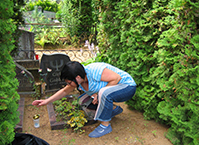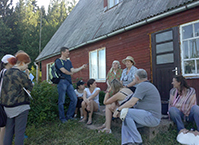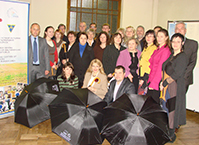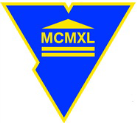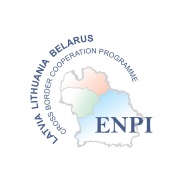E-MUSEUM “VITAMEMORIAE”: COLLECTION AND RESEARCH
Foto
To record people’s life stories, traditions, customs, rituals, rare photographs, old documents, ethnographic differences in funeral rites, etc. the researchers of Daugavpils University and Yanka Kupala Grodno State University carried out field studies in LV and BY territories: in the villages of Krāslava, Rēzekne, Daugavpils regions (Asūne, Foļvarka, Kruki, Skrudaliena, Indra, etc.) and in Belarus (Braslav and Vitebsk districts). The field studies were implemented in the framework of the project “Popularization of the Centres of Oral History in the LV – BY Cross-Border Area”, ID Nr. LLB–2–143, of the Cross Border Cooperation Programme Latvia–Lithuania–Belarus implemented within the framework of the European Neighbourhood and Partnership Instrument 2007–2013.
During the research and the expeditions, the project implementers collected, segmented, transcribed, and digitized the audio-visual materials (audio and video records, photo evidence). To make the collection of the E-Museum more complete, the field researchers and cemetery researchers of Daugavpils University and Grodno University will segment and systematize the audio-visual materials collected during oral history, cemetery research, folklore and dialectology expeditions of the previous years that until now have not been used, aiming at including the best and most valuable segments of the collection into the E-Museum.
The story tellers whose life stories make the input of the E-Museum are people of various generations, mostly elderly people. The childhood of aged people, who at present are about 80 years old, proceeded in the 1930s, therefore the segmented audio-visual units included in the E-Museum chronologically begin from 1929 and can describe only the respondents’ childhood memories. The memory of the older generation is particularly important for the anthropological and historical research – it shifts the time borders, allows for moving to the events of the past through the viewpoints of those who have experienced those times. The facts can be found in chronicles, but what the witnesses of that time can reveal give the memories colour, scent, involve one into mutual emotional experience. The witnesses of the epoch tell about the events form the viewpoint of their own experience.
To motivate the respondents to share their life stories, the project field researchers used Paul Thomson’s oral history research method – enlarged vision of social history where diverse groups of the society are brought together and share common historical experience.
The research basis is the methodology of a semi-structured interview that envisages focused (guided) reconstruction of the past events and an interviewer only helps the respondents to reconstruct the past.
The oral history collection of the E-Museum is envisaged to be used not only by specialists but also by a greatest possible range of non-specialists, therefore, departing from the academic tradition envisaging a complete script and transcript (written transcription of an audio or video record) of life stories, the project experts agreed to segment 360 most vivid, colourful, expressive, unusual, typological or extraordinary audio-visual units (photo, video and audio testimonies) – thematically complete excerpts, and to systematize them according to the thematic plan that would encompass both the historical processes of the 20th century (from the 1920s-30s) and the most essential events of an individual’s life.
ACCESSIBILITY OF THE COLLECTION
The interviews included into the collection are arranged according to the principle of historicism, anthropologism and personalia, indicating the author’s name and the interviewer’s name and surname.
-
About Siberia
Are your parents from Siberia?
No. Before, as far as I know, both dad and mum lived somewhere in the Urals. Well. Not somewhere but mum lived in Chelyabinsk and dad lived somewhere in Ufa. Well. And …
Researcher: Наталья Иващенко, кандидат исторических наук, ГрГУ им. Я. Купалы, Ксения Адасик, ГрГУ им.Я. Купалы
Categories: Family, Albert Ivashchenko
-
Attitude to religion
In Siberia what I clearly remember, I clearly remember I was probably six years old, so I remember how atheists destroyed churches by order of the local authorities; but they threw off the bells, but …
Researcher: Наталья Иващенко, кандидат исторических наук, ГрГУ им. Я. Купалы, Ксения Адасик, ГрГУ им. Я. Купалы
Categories: Confessional and international relations, Albert Ivashchenko
-
Par kara laiku
Example
Researcher: Mg.philol. Inguna Teilāne, Daugavpils Universitāte
Categories: During wartime
-
End of the war
What mood were the people in?
Everybody was glad that the war was over.
And how did you know that the war was over? On the radio?
We were waiting for this moment a lot; there were so many messages. …
Researcher: Наталья Иващенко, кандидат исторических наук, ГрГУ им. Я. Купалы, Светлана Силова, кандидат исторических наук, доцент, ГрГУ им. Я. Купалы
Categories: Beginning of the war, Jakov Kiselev
-
About Father
Well then, in the year of thirty two, in 1932, we moved from Siberia to the Southern Urals. To the town of Kapeisk. It is, well, the town of miners. It is a very famous town, of course, but …
Researcher: Наталья Иващенко, кандидат исторических наук ГрГУ им. Я. Купалы, Ксения Адасик, ГрГУ им. Я. Купалы
Categories: Parents, Albert Ivashchenko
-
First childhood memory
We didn’t have any household. But my father loved animals. Especially, horses. At one of the “zaimkas”, and “zaimka” in Siberia is the name for an isolated farmstead. …
Researcher: Наталья Иващенко, кандидат исторических наук, ГрГУ им. Я. Купалы, Ксения Адасик, ГрГУ им. Я. Купалы
Categories: First childhood memory, Albert Ivashchenko
-
The Soviet system
They (parents) backed up the Soviet system: both mother and father, but, of course, in the kitchen they criticized the Soviet system, but they didn’t express aggression towards the Soviet …
Researcher: Наталья Иващенко, кандидат исторических наук, ГрГУ им. Я. Купалы, Ксения Адасик, ГрГУ им. Я. Купалы
Categories: Man and authority, Albert Ivashchenko
-
Kiselyov about his childhood
Yakov Isaakovich, if coming back to your childhood, did you eat candies then?
Of course.
What kind of candies did you have?
Barbariski (barberry taste candies). Podushechki (pillow like candies). …
Researcher: Наталья Иващенко, кандидат исторических наук ГрГУ им. Я. Купалы, Светлана Силова, кандидат исторических наук, ГрГУ им. Я. Купалы
Categories: First childhood memory, Jakov Kiselev
-
About school before war
How much money needed to bespenton schoolin ginthose days?
Education was free. I grew up in a poor family. I went to school in sandals. I studied fine. With the help of a good school director …
Researcher: Олег Коляго, старший преподаватель кафедры истории Беларуси, археологии и специальных исторических дисциплин ГрГУ им. Я. Купалы
Categories: School, Mikhail Hichanski
-
About local landowner
Please tell us what you remember about the local landowner?
There was Dzedzin’s estate nearby. They called it like that. There were about six houses where people who did not possess land lived …
Researcher: Олег Коляго, старший преподаватель кафедры истории Беларуси, археологии и специальных исторических дисциплин ГрГУ им. Я. Купалы
Categories: Before war, Mikhail Hichanski


